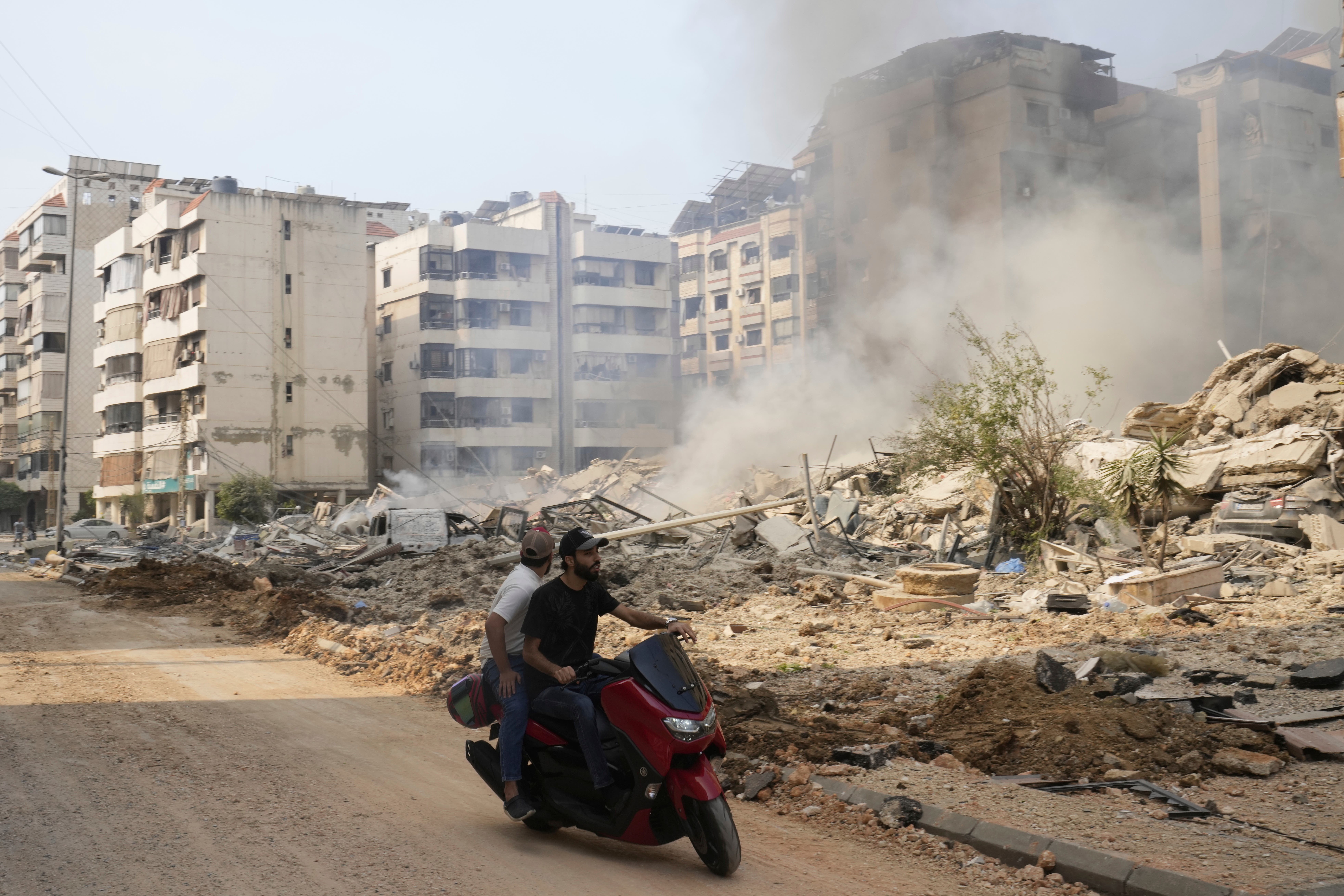UK repeats call for ceasefire after Israeli air strike kills Hezbollah leader
Western governments have pushed for a ceasefire, warning that the situation in Lebanon could descend into a regional war.

The UK Government has repeated its plea for calm in the Middle East following the death of Hezbollah’s leader in an Israeli air strike.
The Lebanese militant group issued a statement on Saturday confirming the death of Hassan Nasrallah, Hezbollah’s leader since 1992, saying he had “joined his fellow martyrs”.
Mr Nasrallah’s death in the strike on Beirut late on Friday has added to concerns that the conflict between Israel and Iran-backed Hezbollah could escalate into a full-scale regional war.
Following news of his death, British officials reiterated the Foreign Secretary’s message to the UN earlier this week in which he called for a ceasefire and a political solution to the conflict.
David Lammy told the UN Security Council on Wednesday: “A full-blown war is not in the interests of the Israeli or Lebanese people.”
On Friday, Mr Lammy said he had spoken to Lebanese prime minister Najib Mikati and “agreed on the need for an immediate ceasefire to bring an end to the bloodshed”.
He added: “A diplomatic solution is the only way to restore security and stability for the Lebanese and Israeli people.”
But pleas for a ceasefire from Western leaders including US President Joe Biden have so far proved unsuccessful, with both Israel and Hezbollah vowing to fight on.
In its statement confirming Mr Nasrallah’s death, Hezbollah vowed to “continue the holy war against the enemy and in support of Palestine”, while Israeli chief of staff Lieutenant General Herzi Halevi said the elimination of the militant leader was “not the end of our toolbox”, suggesting further action was planned.
Meanwhile, Iran’s supreme leader Ayatollah Ali Khamenei, whose government is Hezbollah’s main backer, issued his own message saying “regional resistance forces” should “stand by and support Hezbollah”.
Friday’s strike on what the Israeli military said was Hezbollah’s headquarters was followed by additional air strikes on southern Beirut, prompting civilians to move north in an effort to find safety.
Ettie Higgins, Unicef’s deputy representative in Lebanon, said “thousands and thousands” of people have fled southern Beirut while hospitals were “overwhelmed” and water pumping stations have been destroyed.
She told the BBC’s Today programme: “Even the most basic essential services of healthcare and water are now being rapidly, rapidly depleted.
“There was already a humanitarian crisis in Lebanon given that it’s been hosting over one million refugees from Syria for over a decade, so it’s rapidly escalating into a catastrophe.”
She added that 50 children had been killed and she expected that figure to rise as the air strikes continued.
The Foreign Office has warned British nationals to leave Lebanon immediately, with Mr Lammy saying the Government has worked to “increase flights and secure seats”.
The PA news agency understands the UK Government has successfully asked airlines to increase capacity on routes out of Lebanon, with Foreign Office teams in Beirut to support British consulate services.
It is thought they are ready to facilitate evacuations by sea or air, which could be triggered if the security environment deteriorates further and British nationals are no longer able to leave the Middle East through other routes.
Around 5,000 British citizens are in Lebanon, and the United Nations said 118,000 Lebanese people have been displaced in recent days.
Bookmark popover
Removed from bookmarks